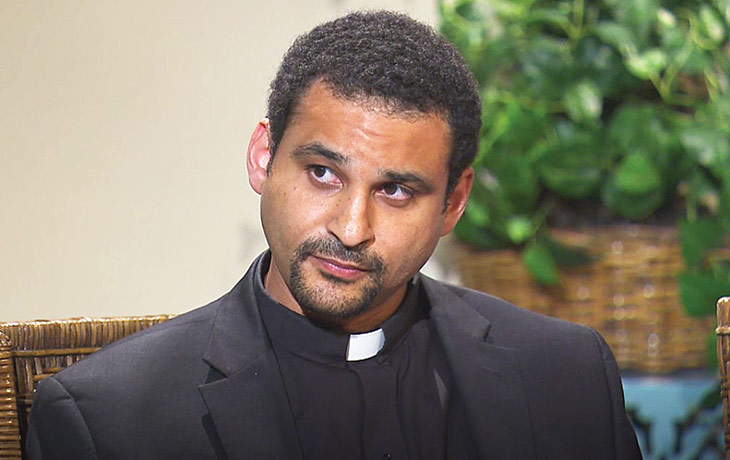URBAN LEAGUE OF GREATER PITTSBURGH PRESIDENT AND CEO ESTHER BUSH
by Christian Morrow, Courier Staff Writer
Over the years, the format and venue for the Urban League of Greater Pittsburgh’s “State of Black Pittsburgh” has changed, but the message, unfortunately, remains stubbornly similar: despite great progress, there is far to go.
This year’s forum, hosted by WQED on June 6, focused on equity, and the lack thereof. As Urban League President and CEO Esther Bush told moderator Chris Moore, equal opportunity is great if everyone is starting from the same place, but the bulk of African Americans in Pittsburgh are starting well back of their White counterparts, economically and educationally, and need equitable assistance just to get to the same starting line.
“Blacks are left out of the (most livable) equation. I’m pushing for individuals to advocate for themselves. I want to be part of the growth and development of Pittsburgh and African Americans are the population that can push us. But we need support, education, equal opportunity—we need equity,” Bush said on the program.
Joining Bush, Moore and his co-host Lisa Washington were three sets of panelists representing local and state government, media, the arts, the nonprofit, human services and faith communities. These were interspersed with videos showing how people in various fields are working to improve the State of Black Pittsburgh.

Among these were model and FashionAFRICANA founder Demeatria Boccella on inspiring young Black girls to help diversify the fashion industry; Sustainable Pittsburgh Director Joylette Portlock on how diversity and sustainability are inextricably entwined, and Tim Smith, director of the Center for Life in Hazelwood, which, in addition to operating educational, athletic and STEAM and wealth managing programs for youth, offered a unique insight: “In communities like Hazelwood, without a lot of resources, people have to be creative.”
Capturing and unleashing that creativity is key, as panelist and Duquesne University Associate Law Professor Jalila Jefferson-Bullock exemplified during a discussion on changing police “use of force” laws. If police can kill people, summarily, on the street, then they are imposing a death penalty.
“Current use of force laws might be judged unconstitutional under the Eighth Amendment. You can look at a police officer (shooting) as a death penalty issue,” she said. “It’s not enough to say it’s wrong, you need concrete reasons.”
Panelist Rev. Paul Abernathy said police incidents like the Antwon Rose II shooting, and the incessant street violence in Pittsburgh’s Black neighborhoods, epitomize the equity problem because they scar whole communities with generational trauma that White neighborhoods do not see or experience.
“In the African American community, we have been inundated with trauma from slavery, to Jim Crow, to what we’re facing with gun violence, evictions, and poverty,” he said. “It’s not that everybody lost a child to violence, but everyone knows someone who has. Not everybody’s been evicted, not everybody’s been incarcerated—but everyone knows someone who has.”
Reverend Abernathy added: “When we look at veterans returning from war—and I’m a veteran who came back from war—when we see a vet with PTSD homeless on the street, we don’t blame that person, we ask how can we help that person. And that’s after spending one year at war like I spent for my nation—we have children who’re essentially spending their whole lives at war. I have talked to people who’ve seen the same thing I saw as a soldier on the battlefield in Iraq who have not yet graduated from high school—and the question is, why do we have a different standard for some Americans than others?”
But, even in the face of this, there is hope, as Rev. John Wallace of Bible Center Church said in one of the video segments.
“The State of Black Pittsburgh is hopeful,” he said. “Despite what we’ve been through, despite the challenges, despite the issues of race and class and all those issues, I feel that Pittsburgh is small enough, and the resources are great enough, and we have enough grit about us as a city that if we were serious about addressing our issues of race, class and other inequities, we could actually tackle and defeat these problems, and become ‘the most livable city in America’ for all of us.”
Bush agreed.
“When I look at the young talent here and about how positive they are, how realistic they are about providing leadership to make change and just stepping forward, yes it excites me,” she said. “And it should excite everyone—Black, White, young and old.”
Like us at https://www.facebook.com/pages/New-Pittsburgh-Courier/143866755628836?ref=hl
Follow @NewPghCourier on Twitter https://twitter.com/NewPghCourier